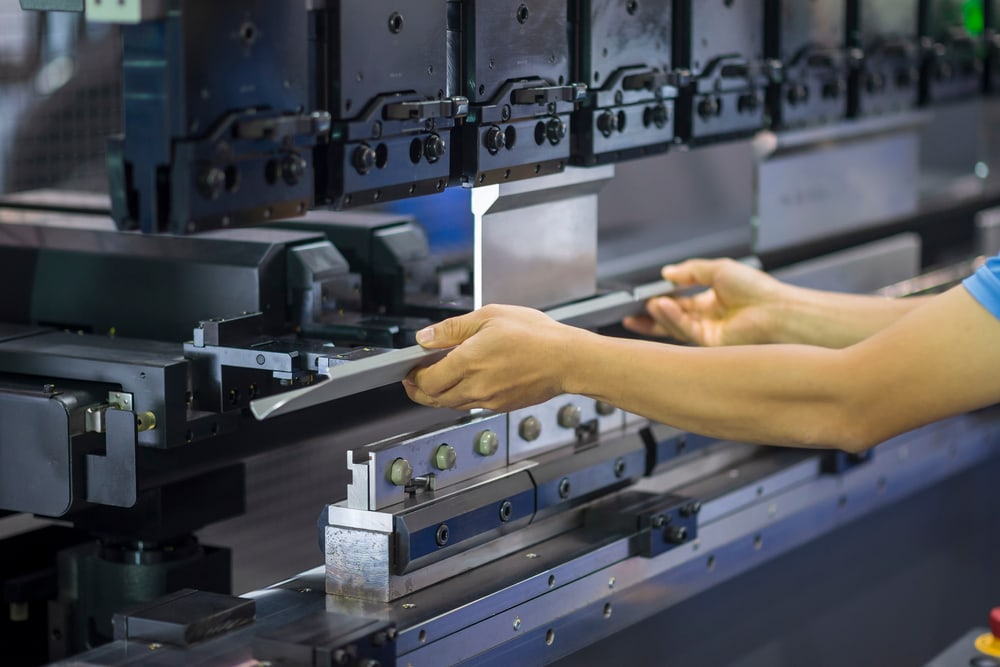Custom metal bending is an in-demand manufacturing process widely used in different industries. Some of the most common applications are in Automotive Production, Architecture, Aerospace Industry, and any application that requires a unique shape.
The process has been refined over centuries to offer precision and accuracy. It is an essential part of the manufacturing process for many products, as it allows for the creation of complex shapes and designs that would be impossible with other production methods.
To give you more details, here’s an overview of the types of custom metal bending and how businesses use the process to create custom components from sheet metal.
Custom Metal Bending: Types
Custom metal bending is the process of bending metals to a predetermined shape for various applications. It involves applying force to it to shape it, depending on the type of material being used. The most common custom metal bending techniques are:
Air Bending
Air bending is one of the most popular and preferred types due to its numerous benefits. The process involves pressing a punch into the material, forcing it into a bottom V-die mounted on the press.
Additionally, the least amount of contact is made with air bending, as it only touches three points: punch, tip, and die shoulders. Its main advantage is that less weight is required due to the punch tip not being pushed past the metal’s surface.
Bending/Bottoming
Air bending and bottom bending are different due to their radius. It differs from coining, where the punch and tie aren’t making contact with the material. And there’s not enough tonnage to make an imprint on the material.
Some of its many advantages are that it has better accuracy and fewer spring-backs when utilizing the tooling. As a result, it’s one of the safest methods around.
Coining
Coining is a process where the top tool forces the material into the bottom die with more tonnage required, which is about five to 30 times the force of air bending. It results in a controlled angle with fewer spring-backs.
Its advantages include outstanding results due to high accuracy. Plus, spring backs are less likely to occur. Therefore, the material won’t return to its original state compared to other methods.
Custom Metal Bending: Induction Bending
Induction bending, also known as hot, incremental, or high-frequency bending, is a piping technique that is both precise and efficient. Any materials, such as pipes, tubes, and structural shapes, are bent efficiently through this method.
Furthermore, induction bending is preferred for bigger pipe diameters. Local heating with high-frequency induced power is used or applied during the process.
Benefits of Induction Bending Compared to Cold Bending
- Keeps ovality and thinning percentages critical for passing inspection processes needed in different industries, such as Petrochemical, Oil & Gas, and Power Plants
- Allows for variable radii from large to small, even on specific bending requirements as tight as a 1.5D radius
- Stronger parts
- Smaller tooling requirements
- Lower material costs
- Cleaner and more efficient operations
- Time-saving
Custom Sheet Metal Rolling
Sheet metal is a material that’s formed through a manufacturing process to produce thin, flat sheets. The process involves passing a metal stock through one or more spinning rolls to reduce the thickness of the material and ensure that they are uniform. Other times, rolling can impart a desired mechanical property.
One of the basic shapes used in metalworking is sheet metal, available in flat pieces or coiled strips. Numerous objects are made with sheet metal since they can be cut and bent into unlimited applications. These are machine components, machine guards, ductwork, wall coverings, tank bodies, and many more for various industries.
Custom Metal Bending from Paramount Roll and Forming
Paramount Roll and Forming started as California’s first pipe roller and eventually expanded its operations. Now, it has become a full-scale custom metal fabrication provider that offers custom metal bending, induction bending, and sheet rolling processes for customers with specific requirements and needs.
Our Capabilities
- Beam bending
- Angle bending
- Channel bending
- Square and rectangular tube bending
- Plate rolling
- Angle rolling up to 10 inches x 10 inches x 1 inch
- Beam rolling up to 36 inches
- Tube rolling up to 18 x 18 inches
- Mandrel bending up to 10 inches SCH 80
Unique parts and components our products create
- Custom spiral staircases for both indoor and outdoor structures
- Railings, fences, and facades
- Military-grade metal parts for land, sea, and air
- Custom cyclone setups for the recycling industry
- Hospital and prison-grade structural components
- Sculptural outdoor metalworks (patio covers, porticos, and more)
- Integrated art and design components
- Specialty tubing for fencing, gates, and enclosures
So if you have any questions or queries about our products and custom metal bending services, don’t hesitate to contact us. You can also request a quote to get started on your next project.





